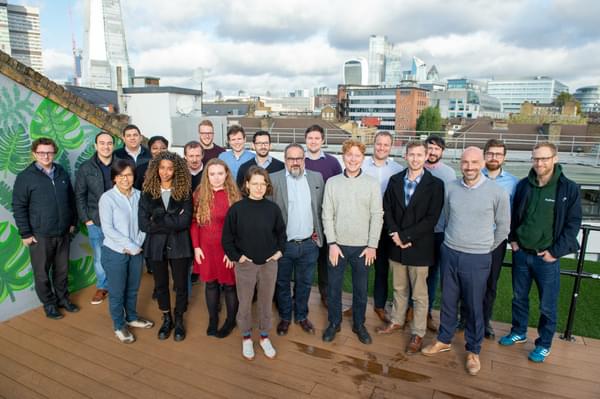Back to News
What should we be looking for in a BIM professional, and how do we find them?
12th Apr 2017
Recruitment has always been a challenge within the engineering sector. Traditionally, the drawing production role has been fulfilled by technical staff that have developed an eye for presentation, and the design and analysis role has always been the domain of the engineer.
However, with the industry adoption of BIM, these roles have become blurred - as alluded to by Lewis Cullinane in his article, The Evolving Role of the Engineer. But, what should our industry be looking for in the digital age? What key skills should we now be considering that we have never thought of before?
3D Engineering
The advent of programmes such as Revit have enabled us to realise real three dimensional engineering, allowing us to construct our projects in a virtual environment. More than ever, design is being undertaken directly into these authoring tools, as it allows a much greater clarity on clearance and coordination. Therefore, a greater knowledge of engineering practice is evermore required by the author. Does this mean we should hire our technical staff from a more engineering-led pool?
Data Management
With a greater focus on 'Big Data', our output has become much more 'data rich'. There is now a greater focus on the correct management of design data to site stage. Complex file numbers, common data environments and information-rich Revit family files have become the norm. All of these need managing. Therefore, do we need to account for a greater ability to process raw data?
Programming
The software and packages we use have a greater level of flexibility than ever before. We can generate custom scripts and actions using programme plug-ins such as Dynamo. These require an in-depth knowledge of coding languages such as Python to fully enable their use. So, are we looking for someone with professional level coding skills?
VR/Augmented Reality
With the greater use of virtual design tools within our industry, our means to deliver our final product has evolved. The traditional 'drawing pack' is decreasing in popularity, and the realm of 3D deliverables is becoming much greater. 3D PDFs, Navisworks exports, IFC files and native Revit files are becoming the norm. Even the use of technologies such as Google Cardboard, Oculus Rift and The HoloLens are all bringing the requirement for new skill sets and competencies. Could we look to the gaming or IT industries to provide us with the resource for these specialist requirements?
Project Management
There is a greater need for control over what information we provide at each stage of a project. What is too much? Have we provided enough information? What resources can we use to achieve our aims? Is there a need for our BIM staff of the future to have the ability to multi-task like a project manager?
It's clear that the skills of old are still relevant: The ability to lay out a drawing sheet; the ability to picture how a drawing pack would go together to form a distinct whole; the ability to turn design intent into working output.
The key question we need to be asking ourselves, is what do we want to achieve from our BIM professionals? Are we still looking to simply get basic design information recorded, or are we looking for the added value that we can provide to our company or clients? How much resource are we willing to commit to achieve these ambitions?
What will the composition of our design teams be in the future?
Explore related
- News

Data centres, fire risk and the digital golden thread of information: Hydrock contributes to Fire Middle East
Read more- News

Peter Sibley comments in Building Magazine: Will Sunak’s ‘plan for growth’ be a magnet for future investment?
Read more- News

Celebrating International Women in Engineering Day 2023: A journey of empowerment and growth
Read more- News

Hydrock strengthens national MEP division with new healthcare sector lead: Accelerating innovation in sustainable healthcare engineering
Read more- News

Ric Hampton comments in Property Week: The state of the UK’s film and TV studio market
Read more- News

Hydrock adds leading technical specialist to its civil and structural team in Yorkshire
Read more- News

Simon Cole joins Hydrock as leading technical specialist for Geo-Environmental and Geotechnical division
Read more- News

Former KPMG Partner and Board Member, Ronnie McCombe joins Hydrock as Non-Exec Chairman
Read more- News

Industry-leading clean energy specialist joins Hydrock to power growth of Smart Energy & Sustainability business
Read more- News

Rapidly expanding Smart Energy team hires international expert in decentralised energy
Read more- News

Hydrock Nuclear divisional director, Peter Sibley, appointed to Nuclear Industry Council
Read more- News

From History Graduate to Utilities Consultant: My unexpected route into engineering (as a girl)
Read more- Articles

























































